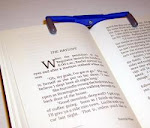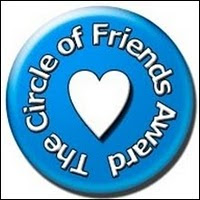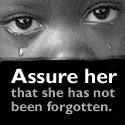One of my topics of great interest is the treatment of the Jewish people during World War II. My interest was spurred by the assigned reading of ‘The Diary of Anne Frank
Here is the synopsis of this novel :
:
Based on Actual Events.
When Had God Ever Stopped A War Because A Teenager Asked Him To?
For fifteen-year-old Julien Losier, life will never be the same. His family has relocated to southern France to outrun Hitler’s menace. But Julien doesn’t want to run. He doesn’t want to huddle around the radio at night, waiting to hear news through buzzing static. Julien doesn’t want to wait.
Angry, frustrated, and itching to do something, Julien finds a battle everywhere he turns.
Soon after his family opens their home to a Jewish boy needing refuge, Julien meets Nina, a young Austrian who has fled her home by her father’s dying command. Nina’s situation is grave and Julien suddenly realizes the enormity of having someone’s life or death depend on…him.
Thrown together by a conflict that’s too big for them to understand, each one struggles to know what to do, even if it is not enough. Is there a greater purpose in the shadows of this terrible war? Or will their choices put them in greater danger?
Here are the biographies of this daughter/mother author duo:
Heather Munn was born in Northern Ireland of American parents and grew up in the south of France where her parents and grandparents worked as missionaries. She decided to be a writer at the age of five when her mother read Laura Ingalls Wilder’s books aloud, but worried that she couldn’t write about her childhood because she couldn’t remember it. When she was young, her favorite time of day was after supper when the family would gather and her father would read a chapter from a novel. Heather went to French school until her teens, and grew up hearing the story of Le Chambon-sur-Lignon, only an hour’s drive away. She has a BA in literature from Wheaton College and lives in a Christian international community in rural Illinois with her husband, Paul, where they offer free spiritual retreats to people coming out of homelessness and addiction. She enjoys wandering in the woods, gardening, writing, and splitting wood.
Lydia Munn was homeschooled for five years because there was no school where her parents served as missionaries in the savannahs of northern Brazil. There was no public library either, but Lydia read every book she could get her hands on. This led naturally to her choice of an English major at Wheaton College, where she earned a BA in literature. Her original plan to teach high school in English gradually transitioned into a lifelong love of teaching the Bible to both adults and young people in southern France, where she has also been church planting, since 1983. Ten of those years were spent in St. Etienne, near the small town in the central mountains of France that provides the settings of How Huge the Night . She and her husband, Jim, have two children: their son, Robin, and their daughter, Heather.
. She and her husband, Jim, have two children: their son, Robin, and their daughter, Heather.
Here is the trailer for this interesting book :
:
Several characters have a strong faith in God. Here is Julien, one of the main characters, early on in the story:
Julien looked up. The moon was gone, and so were the stars, and he was on his knees. “God,” he whispered. His voice was dry. “God. Please don’t let them get to Paris. Please keep…everybody…safe.” He sounded like a child – and God bless Mommy. When had God ever stopped a war because a teenager asked him to? The image came back, the tanks firing, the recoil, Vincent’s face grinning. He could never be a soldier. Never drive a tank.
It was unbearable.
I want to do something, God. Let me do something. Please. The word serve rose in his mind, the word protect, but he couldn’t even think them; it sounded stupid. What did he know how to do? Do the dishes, play soccer. Split wood. (pp. 16-17)
Another strong man of faith was Pastor Alex. He advocated action against evil:
Then Pastor Alex spoke of evil.
He spoke of the Nazis and the things they did. He spoke of Kristallnacht, and Julien clenched his teeth. He asked if we must sit passively by while evil overcomes good. Julien lifted his head.
Pastor Alex leaned forward. Jesus didn’t say, “Don’t kill your enemies.” Would Jesus simply command us not to act in the face of evil, he who won the greatest victory, who conquered sin and death? No, friends, no. What did Jesus tell us to do to our enemies?
Love them.
“Jesus,” said Pastor Alex, and his voice almost shook. “Jesus, the only begotten Son of the Father, offers us this chance to be his brothers and his sisters and to fight as he fought; he gives us his weapons, the Father’s weapons, the weapons of the Spirit.” He sounded reverent, almost in awe. “The weapons of love,” he said. “Fearless love.”
Julien sat straighter. Fearless love. Even if he was never a soldier. Was that what Pastor Alex was saying? He could still fight. (p. 101)
There were two different storylines alternating through the book – that of Julien and his family, and that of the brother and sister, Gustav and Nina. It was interesting how the two stories converged toward the end of the book.
In the Historical Note (by Heather) at the end of the book, she explains how much of the history is based on fact. She also explained why she (along with her mother) wrote a book set in this time period:
One of the reasons this period of history fascinates me is choices. In France under the Nazis, people made all kinds of choices. Some got rich off the black market; some through collaboration. Some used the Nazis for revenge, feeding them true or false information against their enemies. Some followed Petain unquestioningly; some just survived, as attentistes, “wait-ists,” who chose not to get involved. Some vowed to fight the Germans to the bitter end and started the Resistance, which in those early days seemed completely doomed. And a few, like the people of a village in central France called Le Chambon-sur-Lignon, chose to focus on those in the deepest need and danger, and protect them from harm. (p. 302)
Heather closes out her Historical Note this way:
At the end of the book, Julien expects his country to be under Nazi domination for the rest of his life. This also is accurate. There was no good reason, then, to think otherwise. It is with no hope in sight that the people of Le Chambon trusted God and did what they could for the people they saw being persecuted. Sixty-five years later what they did is still remembered. I hope it always will be. (p. 304)
I really liked this book. It was interesting to get inside the mind of young people who lived in France in 1940. It must have been a scary time, both in terms of what was happening with Hitler and Germany, as well as the normal hormonal trials of teenagers.
Although this book is categorized as Teen Fiction, I think it appeals to all age groups. It is a terrific book to encourage a young person to read; they may not have previously been aware of the events of World War II and Hitler’s persecution of God’s Chosen People. This book would be a great introduction. And it is written in an interesting and engaging style, which would appeal to all ages.
You can order this book here .
.
This book was published by Kregel Publications and provided by them for review purposes.
















.jpg)


1 comment:
I'm a new follower. I enjoyed your review of this book. I've thought about picking this book up several times. I review christian fiction too. Check out my blog if you would like. :)
Post a Comment